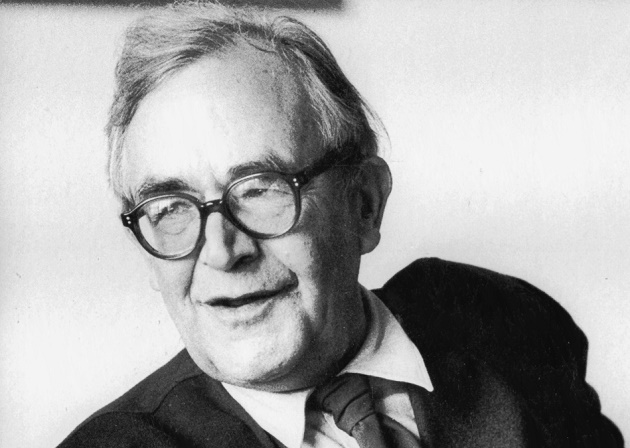In terms of the Protestant evaluation of Roman Catholicism, Barth’s theology of the Word has weakened the evangelical ability to assess Rome having the Bible as supreme standard.
 Karl Barth. / Wikimedia
Karl Barth. / Wikimedia
The interpretation of Roman Catholicism by Karl Barth went through a major change, if not a turning point, with Vatican II (1962-1965). The Council, to which the Swiss theologian did not take part but which he closely followed during and after the conclusion of the sessions, represented for him a testimony of how Roman Catholicism had taken a substantially new direction, away from the mere reiteration of the inherited legacy of XVI century anti-Protestantism, XIX century anti-revolutionary conservatism and the absolutist rigidity of Vatican I (1870).
The opportunity to meditate on this change is provided in the book by Donald W. Norwood, Reforming Rome: Karl Barth and Vatican II (Grand Rapids, MI: Eerdmans, 2015). In this study, based on a doctoral thesis, the English theologian of the United Reformed Church Donald Norwood, examines the understanding of Vatican II by Barth. Norwood is aware that Barth had taken a polemical stance before Vatican II, whereas after Vatican II he emerges as a more “catholic” theologian, that is wanting to address the church in its entirety and totality beyond well-entrenched confessional boundaries. Thinking of Karl Barth’s trajectory, Reinhard Hütter speaks of it as a theological vision marked by “dialectical catholicity” (p. 80) whereby Barth is a catholic theologian, still maintaining his dialectical approach towards the Bible, tradition and the ecclesiastical outlook of the church.
A Change of Approach
In reading Vatican II, Barth was struck by the recovery of the Word of God especially reflected in Dei Verbum, the dogmatic constitution on divine revelation. He saw Catholic theology embracing a more “dynamic” view of the Word of God that in some ways resembled his theology of the Word. According to this shared dynamic understanding of the Word of God, the Bible is the Word only in a relative and secondary sense. The point is that the non-identity view of the Bible and the Word of God was shared both by Barth and Vatican II and gave both theologies their “dynamic” flavor.
Barth was also impressed by a Christocentic emphasis of the Council (especially in Lumen Gentium, the dogmatic constitution on the Church) that may be compared to the Christological concentration of his own theology. Finally, he was further impressed by the desire for unity that he read in the conciliar texts. Bringing all of these elements together, Barth became convinced that the remaining differences between Protestantism and Roman Catholicism were no longer matters of theological substance but needed only to be perceived as multiple emphases within the one and only Church. If before Vatican II Barth had charged Rome of being trapped in the philosophical prison of analogia entis (analogy of being), after Vatican II he endorsed the view according to which the two traditions were ecumenically complementary.
After Vatican II Barth underlined the more “catholic” elements of the Roman Church focusing on commonalities, rather than criticizing the “roman” aspects of the Catholic Church which might have been controversial. This does not mean that Barth stopped asking deep questions and suggesting issues for discussion; rather his attitude as a whole changed, becoming more ecumenically minded. Norwood mainly focuses on the ecclesiological issues with which Barth continued to critically engage Roman Catholicism, as well as the Catholic readings of Barth by Yves Congar, Hans Urs von Balthasar, and others who did not stop arguing with him. In fact, after Vatican II ecclesiology remains for Barth the decisive difference, while the rest (even Mariology, that for the pre-Vatican II Barth was the quintessential Catholic error!) is in some way subsumed into the compatible diversity of a plural Christianity. Having said that, for Barth acknowledging ecclesiological diversity no longer means taking a divisive posture with regards to the Roman Catholic Church (p. 188).
Standing Issues
Norwood offers a detailed and sympathetic reading of Barth’s interpretation of Vatican II. From the 1960s onwards, the compatibilist and complementary understanding of the relationship between Protestantism and Roman Catholicism became the common denominator of the ecumenical movement to which Barth belonged with conviction.
The gigantic stature of Karl Barth is undeniable, but these are some of his limits: despite having called attention to the Word of God, his theology of the Word has not actually prevented the long wave of theological liberalism, marked by severe skepticism towards the trustworthiness of the Bible, to become the framework of mainstream Protestantism. In terms of the Protestant evaluation of Roman Catholicism, Barth’s theology of the Word has weakened the evangelical ability to assess Rome having the Bible as supreme standard and has encouraged a dialectical approach which has moved away from Sola Scriptura. Moreover, his seemingly Christocentric theology has been unable to discern the idiosyncratic nature of the Roman Catholic sacramental system, its Mariology and hierarchical structure, thus making all these fundamental elements apparently compatible with a biblical Christology.
These criticisms are not shared by Norwood, but the question of whether or not Karl Barth’s reading of Vatican II has been beneficial to the Church is worth asking.

Las opiniones vertidas por nuestros colaboradores se realizan a nivel personal, pudiendo coincidir o no con la postura de la dirección de Protestante Digital.
Si quieres comentar o